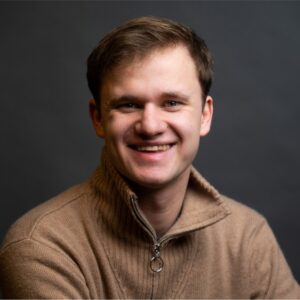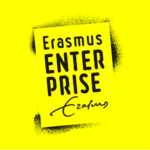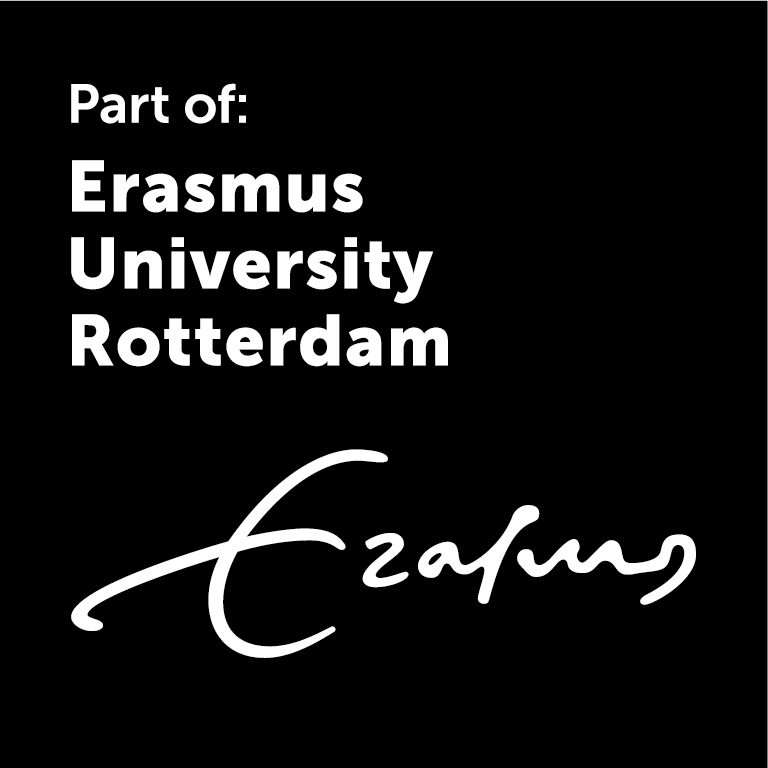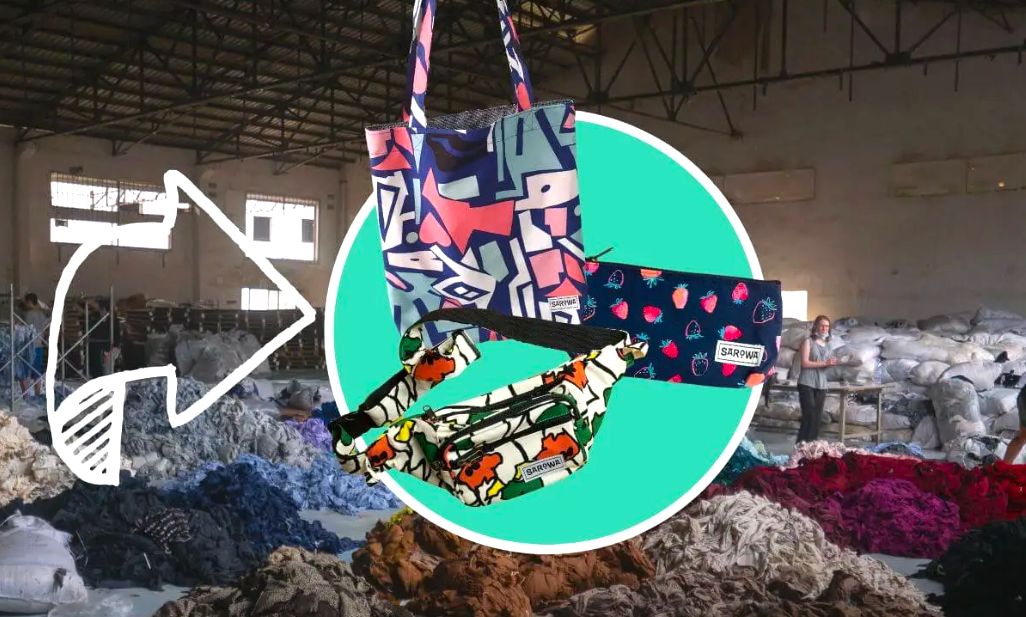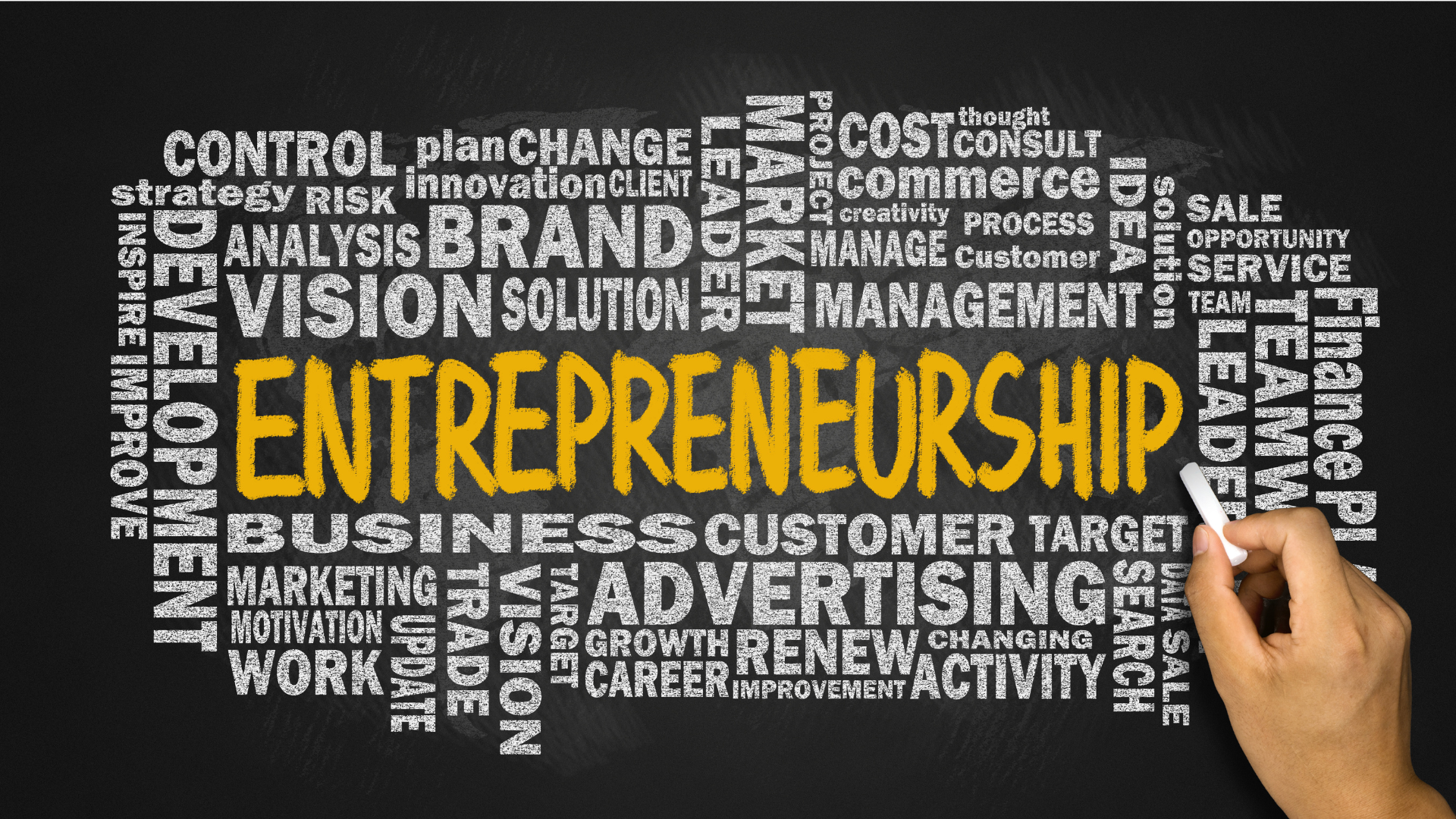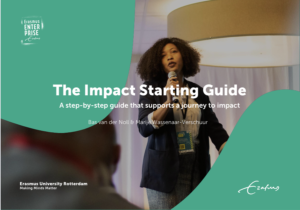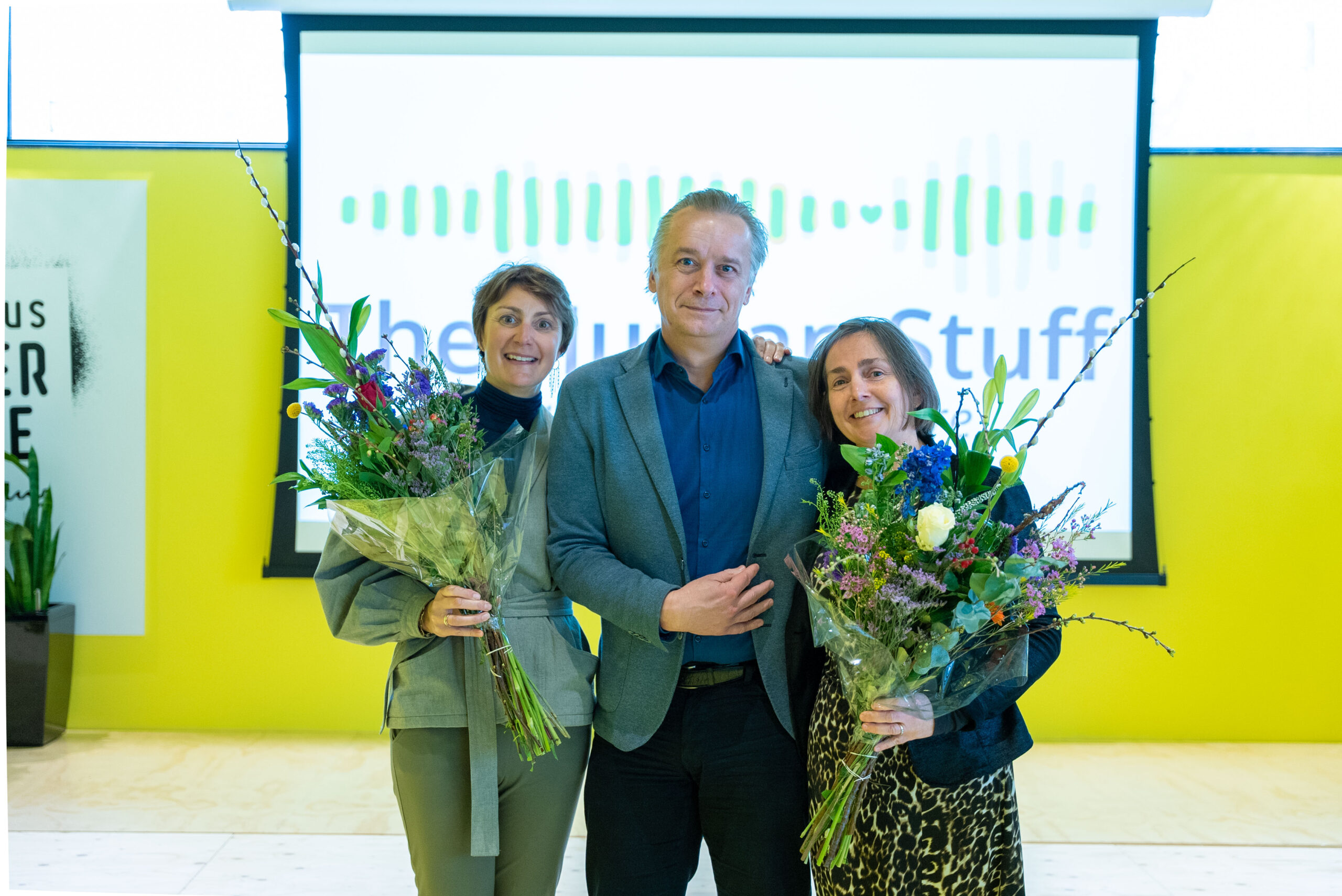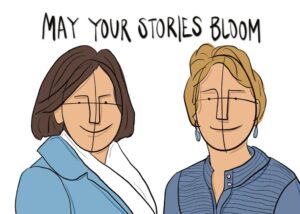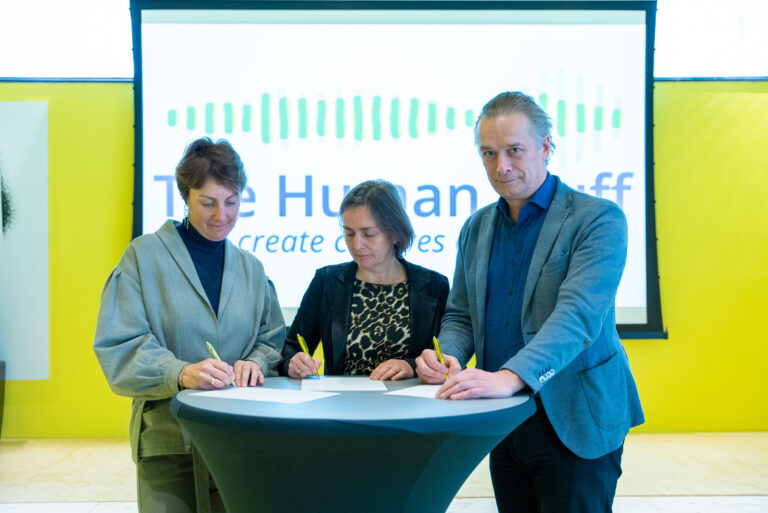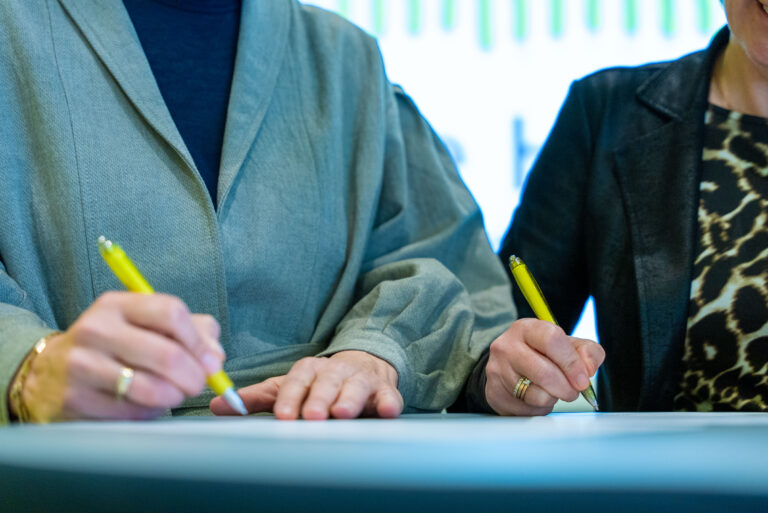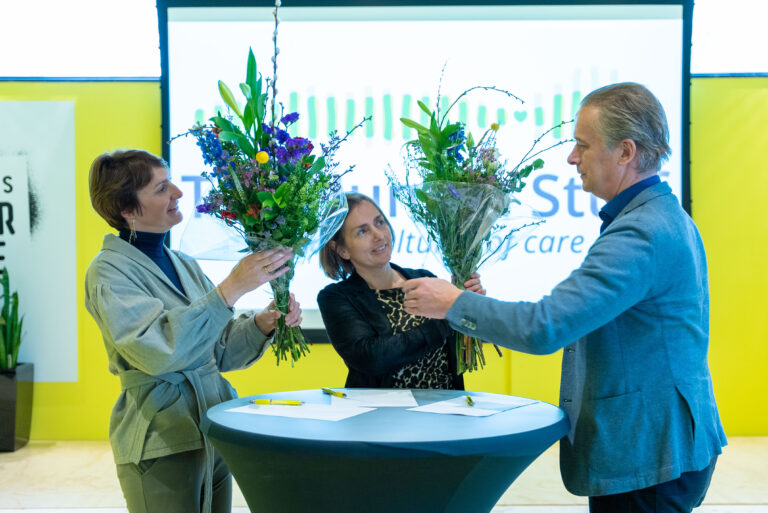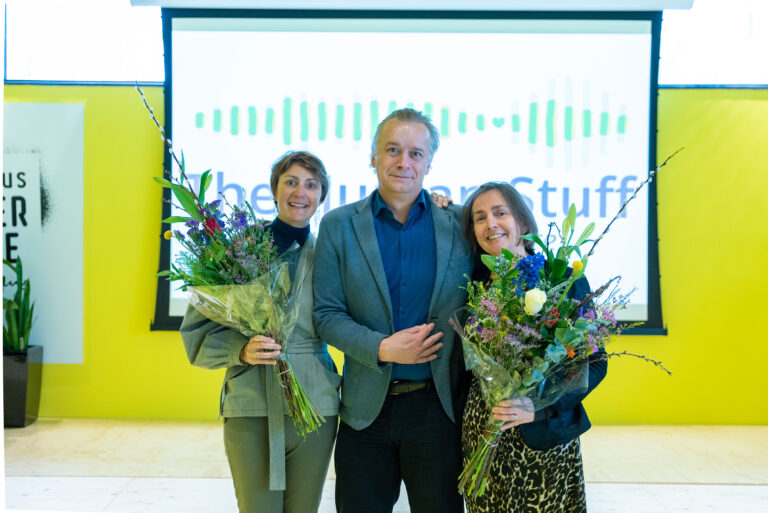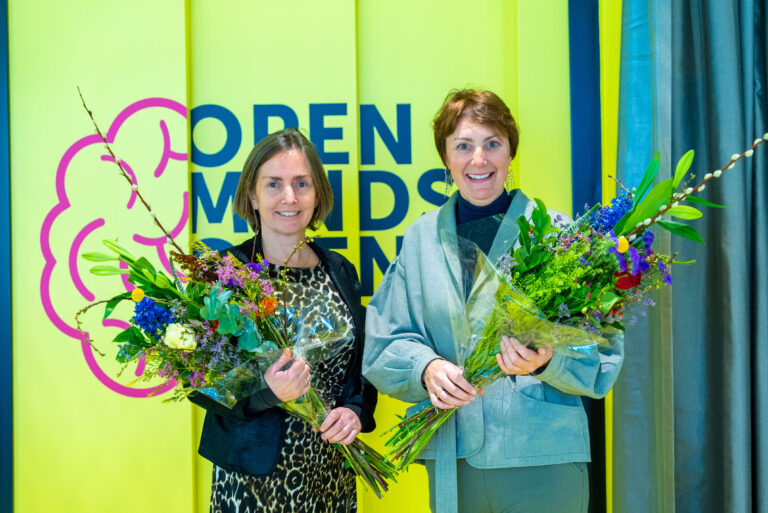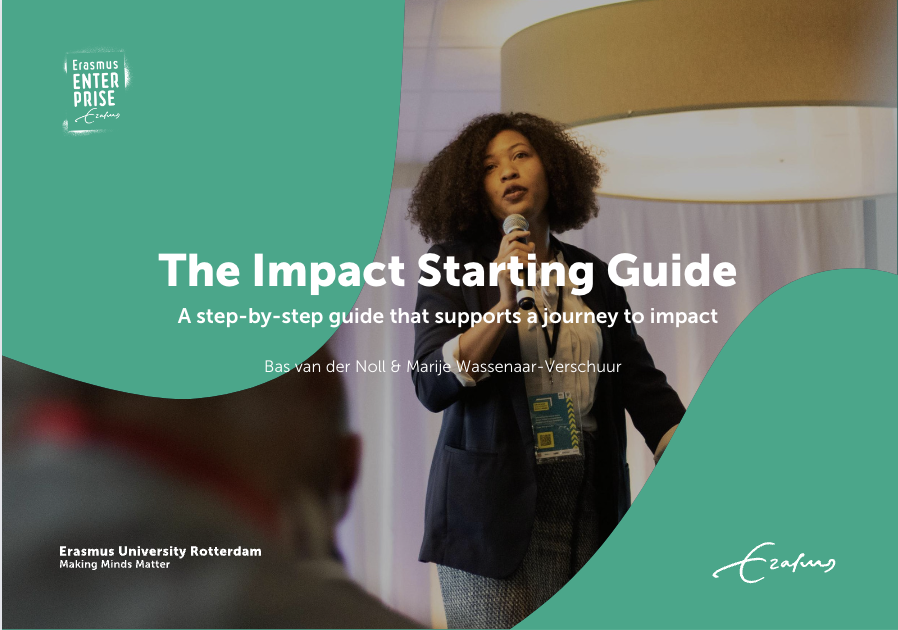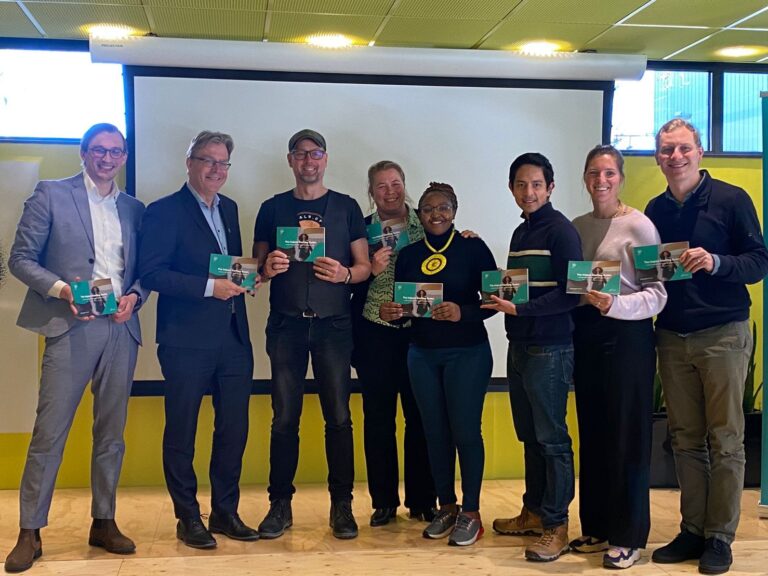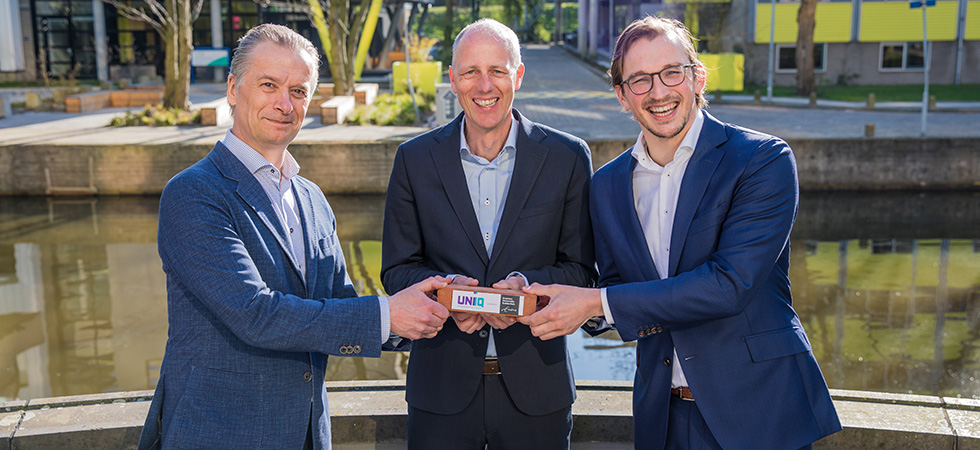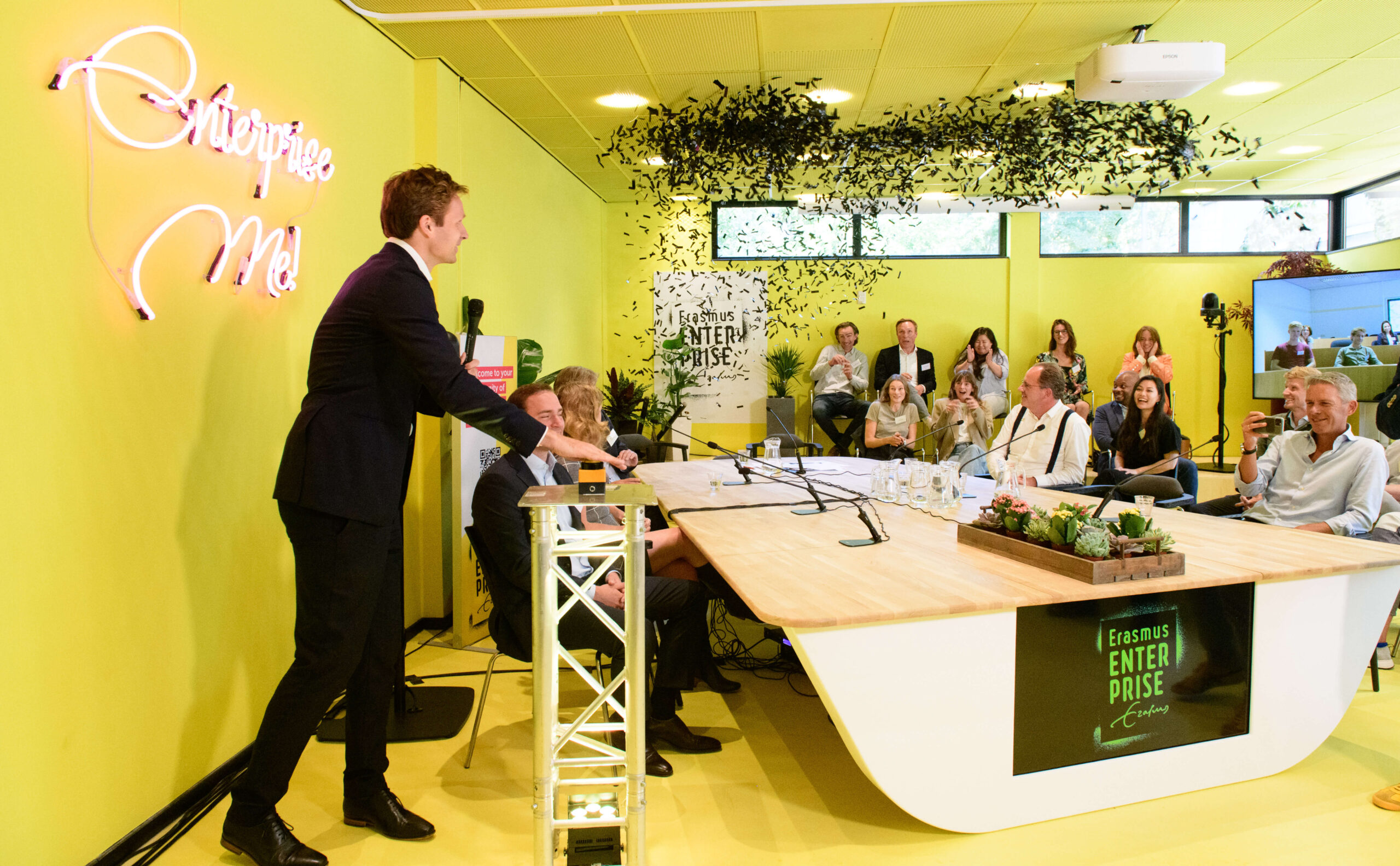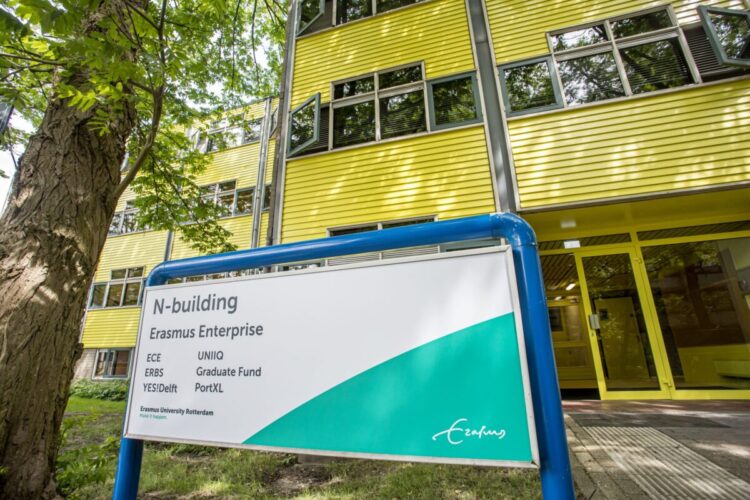Rotterdam, 21 maart 2022 – Afgelopen december is de Erasmus Universiteit Rotterdam (EUR) officieel toegetreden tot het Zuid-Hollandse proof-of-conceptfonds UNIIQ. Daarmee zijn alle academische instellingen van de provincie Zuid-Holland nu aandeelhouder van het fonds. De EUR investeert in UNIIQ om spin-offs in een vroeg stadium financiering te bieden voor de ontwikkeling van hun innovatie, en zo het ondernemerschap onder studenten en medewerkers verder aan te jagen. Op 21 maart bezegelden Hans Dreijklufft, fondsmanager van UNIIQ, en Ernst Hoestra, CEO van Erasmus Enterprise, de toetreding op universiteitscampus Woudestein.
De TU Delft en de Universiteit Leiden zijn samen met het Erasmus MC en regionale ontwikkelingsmaatschappij InnovationQuarter de oprichters van UNIIQ, dat sinds 2016 bestaat. Het vroegefasefonds staat inmiddels bekend als zéér actieve investeerder en is hard op weg naar de 50e deal. Samen haalden de UNIIQ-portfoliobedrijven al meer dan € 120 mln. aan vervolgfinanciering op.
De toetreding van de derde Zuid-Hollandse universiteit biedt Rotterdamse studenten, PhD’ers, onderzoekers en medewerkers nog beter en sneller toegang tot de financiële en inhoudelijke support van UNIIQ. Een investeringsmanager van Erasmus Enterprise, de ondernemerscommunity van de EUR, is gedetacheerd bij UNIIQ om innovaties te scouten, jonge ondernemers te begeleiden en zo de samenwerking tussen de universiteit en het fonds te versterken.
Toegang tot unieke expertise
Andersom biedt de toetreding UNIIQ en haar portfoliobedrijven toegang tot de unieke expertise van de EUR, met name op het gebied van business en entrepreneurship, software en kunstmatige intelligentie (AI). Met onderwijs en onderzoek op het gebied van econometrie, business information management, data science en business analytics vormt de EUR een aanvulling op de expertises van de andere academische partners, waaronder life sciences (Universiteit Leiden en Erasmus MC), hardware en deeptech (TU Delft). De toegang tot de kennis en kunde van de EUR stelt UNIIQ in staat haar portfoliobedrijven inhoudelijk nog beter en gerichter te ondersteunen.
Aanvulling op Graduate Entrepreneur Fund
Studenten en alumni kregen al ondersteuning vanuit het Graduate Entrepreneur Fund, opgezet door alumni van de EUR en de TU Delft. Hiermee komen jonge ondernemers in eerste instantie in aanmerking voor het Graduate Entrepreneur Pre-Seed Fund: maximaal € 75.000 om hun bedrijf op te starten. Als ze in deze onderzoeksfase hun potentie weten te bewijzen, biedt UNIIQ een proof-of-conceptfinanciering tot € 350.000. Voor de commercialisering kunnen de startups vervolgens aankloppen bij het Graduate Entrepreneur Seed Fund, voor een kapitaalinjectie van maximaal € 2 mln. Zo vullen de fondsen elkaar op logische wijze aan en ontstaat een sterke financieringsketen.
Hans Dreijklufft, UNIIQ-fondsmanager bij InnovationQuarter: ‘We zijn heel blij met de EUR als nieuwe aandeelhouder. Als het enige publieke vroegefasefonds in de regio hebben we de afgelopen vijfenhalf jaar met veel succes geïnvesteerd in (academische) startups. We hebben ze geholpen hun ideeën te ontwikkelen en die versneld naar de markt te brengen. Samen met de EUR kunnen we hen nog beter helpen en tegelijkertijd ons portfolio uitbreiden met nieuwe ondernemingen. De toetreding versterkt en verbreedt onze positie.’
Ernst Hoestra, CEO Erasmus Enterprise: ‘Op de universiteit maken we steeds meer werk van kennisvalorisatie en ondernemerschap. We willen de ideeën en innovaties die hier ontstaan succesvol naar de markt brengen. Dat maakt het voor ons een logische en waardevolle stap om nu onderdeel te worden van UNIIQ, en daarmee ondernemerschap aan te jagen bij onze studenten, afstudeerders en alumni.’
UNIIQ
Hans Dreijklufft
Fondsmanager
+31 6 122 24 842
hans.dreijklufft@uniiq.nl
www.uniiq.nl
Twitter: @UNIIQ_NL
Erasmus Enterprise
Ernst Hoestra
CEO
+ 31 6 146 33 020
hoestra@eur.nl
www.erasmusenterprise.com
Over UNIIQ
UNIIQ is een investeringsfonds van initieel € 28,8 mln. gericht op de proof-of-concept fase. UNIIQ helpt ondernemers in Zuid-Holland om hun unieke innovatie sneller naar de markt te brengen. Wij bieden ondernemers het startkapitaal om hun plannen te realiseren en de meest risicovolle fase van concept tot veelbelovend bedrijf te overbruggen. Het fonds is opgericht door een consortium bestaande uit Erasmus MC, TU Delft, Universiteit Leiden en de regionale ontwikkelingsmaatschappij InnovationQuarter. UNIIQ is mede mogelijk gemaakt door de Europese Unie, de provincie Zuid-Holland en de gemeenten Rotterdam, Den Haag en Leiden. Het fondsmanagement wordt uitgevoerd door InnovationQuarter.
Bekijk hier een korte introductie van UNIIQ:
Over Erasmus Universiteit Rotterdam
De Erasmus Universiteit Rotterdam (EUR) is een internationaal georiënteerde onderzoeksuniversiteit met een uitgesproken maatschappelijke oriëntatie in zowel onderwijs als onderzoek. Wetenschappers en studenten werken er aan het oplossen van mondiale uitdagingen, waarbij Rotterdam fungeert als levend stadslaboratorium. De universiteit kent een onderscheidend profiel, dat bestaat uit vier domeinen: gezondheid, welvaart (duurzame economische groei), bestuur (de organisatie van bedrijven en maatschappij) en cultuur (media, geluk en identiteit in de moderne stedelijke samenleving).
Over Erasmus Enterprise
Erasmus Enterprise is de ondernemersgemeenschap op de Woudesteincampus van de Erasmus Universiteit Rotterdam. Hier brengen Erasmus Centre for Entrepreneurship (ECE), Erasmus Business & Research Support (ERBS), tech-incubator YES!Delft en UNIIQ hun expertises samen om startups en scaleups te helpen groeien. De gemeenschap biedt jonge ondernemers, studenten, alumni, academici en regionale professionals toegang tot kennis, training, financiering en huisvesting met als doel innovatieve ideeën om te zetten in succesvolle bedrijven.
